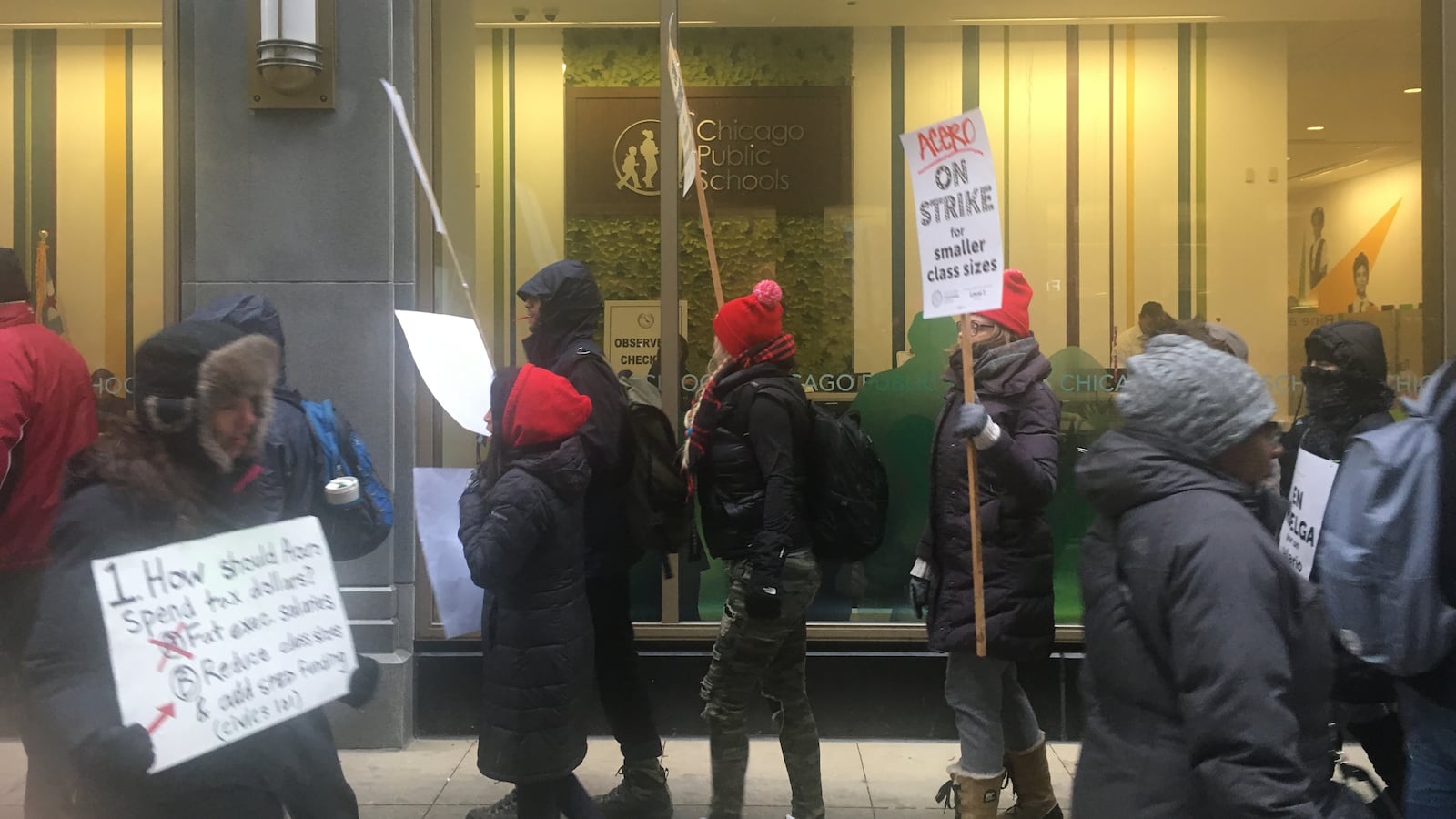As a strike that has left 7,500 students out of school headed into its third day, union teachers reported small gains — but stuck adamantly by demands for smaller class sizes and for increased pay, including for paraprofessionals.
Likewise, the Acero charter network reported productive movement late Wednesday — even on the contentious issue of the pay scale for support staff. But shortly after midnight, union officials said the strike would extend a third day with plans to double shifts on picket lines.
Read more: Five Acero teachers on why they decided to strike
“The network seems to be offering more to teachers and less to paraprofessionals, and our bargaining unit does not accept that,” said Martha Baumgarten, a fifth-grade teacher at Acero’s Carlos Fuentes Elementary and a member of the bargaining team.
An Acero spokesperson told Chalkbeat its proposal included a 6 percent increase, on average, for teachers in each year of a proposed 4-year contract. It also reported conceptual agreement on a “step schedule” for support staff. That could create a matrix, similar to what most public school teachers have, for raises based on longevity and advanced education.
Union negotiators said that pay for support staff such as special education aides and office coordinators is a key part of their demands.
But Daniria Dukes, a member of the union’s bargaining team, said that the union also had not seen enough progress on core demands such as class size and compensation.
About 500 union members have been on strike at 15 schools run by Acero, Chicago’s second-largest charter network, since Tuesday. Community organizations such as the YMCA of Metropolitan Chicago and the city’s park system have stepped up with day programs for children displaced by the walkouts.
Paraprofessionals want a pay scale similar to teachers’, rather than a percentage raise with each contract. They also want to lift the pay cap on teacher aides, who they said earn 50 percent what teachers earn.
The aides also want the charter network to create a clear path to become classroom teachers.
Acero picketers repeatedly mentioned the role of paraprofessionals as reasons behind their strike. Special education teacher Kristin Maher, walking in front of Veterans Memorial Campus on Tuesday, said she wanted to make sure that students with special needs get adequate support.
At her school, Acero-Major Hector P. Garcia M.D. High School, she said, turnover is high among paraprofessionals who help students with disabilities.
“Although compensation [for teachers] is an issue, I am much more concerned about the funding they give special education,” she said.
She’s also concerned about paraprofessional wages.
She noted that whereas teachers have won raises in the past, others have not reaped the same gains. “We need funding for our paraprofessionals,” she said. “They are the first line for all of our students, the office coordinators are the first line who see the parents. They are the face of our school.”

